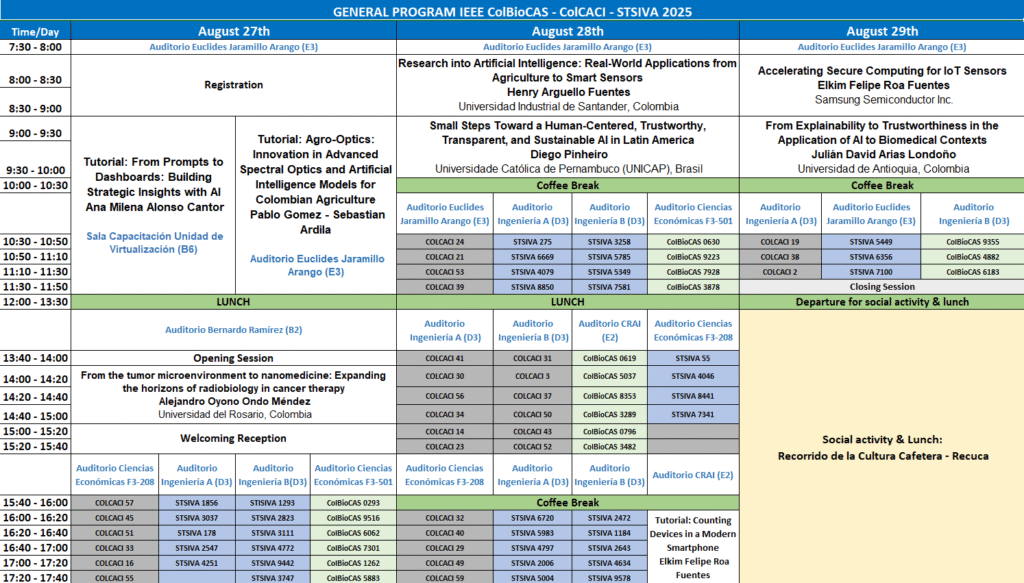IEEE ColBioCAS 2025 is co-hosted with STSIVA and ColCACI. The general program is shown below.

Check this link for Information about Keynote speakers & guest talks.
You can download a detailed information about IEEE ColBioCAS, ColCACI and STSIVA tracks here.
A campus map can be download from here.
All lunches and the social activity on friday are included only for authors who paid R1 or R2 rate fees.
The social activity will take place on Friday at RECUCA theme park. We will provide transportation to the park. Friday’s lunch will be a traditional meal upon arrival to the park. At RECUCA, you will learn about traditions of the coffee area. This activity is included only for authors who paid R1 and R2 rate fees. Attendees, who paid other rate fees, or other guests may access this activity by paying an extra fee at the registration website.

